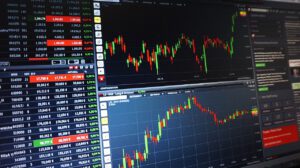By Anna Peel. Originally published at ValueWalk.

J Sainsbury plc (LON:SBRY)’s grocery trading was better than expected in the third quarter and important Christmas period. That reflects increased market share as the group invested heavily in reducing prices and expanding its food ranges.
Q4 2021 hedge fund letters, conferences and more
General Merchandise and Clothing sales fell year-on-year because of weak demand, comparisons with last year’s exceptional trading, supply chain issues and the decision to reduce promotional activity.
Total retail sales are up 1.4% on a two-year basis. The better-than-expected grocery results and cost savings means full year underlying operating profit guidance has been upped by £60m, to £720m.
The shares rose 2.3% following the announcement.
Sophie Lund-Yates, equity analyst at Hargreaves Lansdown:
“Sainsbury’s is the latest supermarket directly trying to take on the discounters, with massive investment in reducing prices helping the supermarket up its market share. The group also benefitted from another year of customers wanting to treat themselves over the festive season, as rules were relaxed and people went all-out, piling trollies and virtual baskets high. Record champagne sales will have helped the overall picture, but are also a marker of a wider benefit for bigger superstores. Sainsbury’s can offer customers everything they need under one roof, including famous drink labels – that’s not something the German discounters can say. Striking the right balance between offering good value and having the correct food proposition has meant good news for Sainsbury’s this time around.
As we embark on the new year there are some lingering challenges. General Merchandise sales remain subdued, and while current events including supply chain disruption are partly to blame, there are structural declines in some markets. Sainsbury’s is especially exposed to this market thanks to the acquisition of Argos.
Compared to pre-pandemic times, overall sales growth is sluggish. That’s largely because the supermarket sector is incredibly competitive, holding onto market share is a bit like trying to grab a wriggling fish. To reverse this, Sainsbury’s is sliding down the value chain to appeal to cost-conscious shoppers. It’s a relief to see the group target a more specific market, and this approach could certainly help in an inflationary environment as incomes don’t stretch as far. Progress can’t really be knocked. However, keeping margins inflated will rely on volumes keeping pace, doing that over the long-term will involve nailing the proposition time and time again.”
About Hargreaves Lansdown
Over 1.67 million clients trust us with £138.0 billion (as at 30 September 2021), making us the UK’s number one platform for private investors. More than 98% of client activity is done through our digital channels and over 600,000 access our mobile app each month.
Updated on
Sign up for ValueWalk’s free newsletter here.



